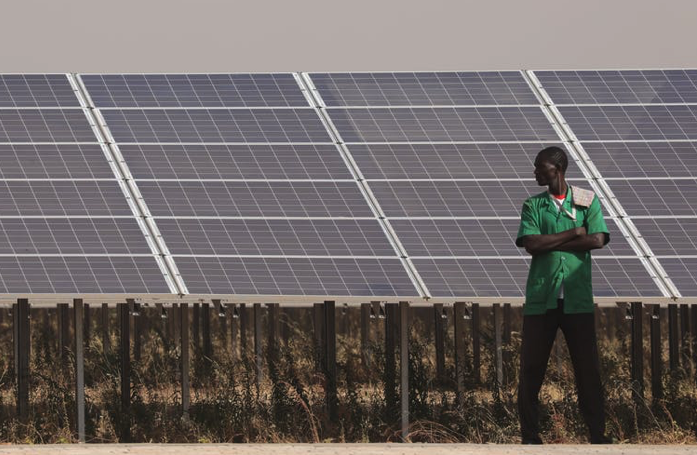- During the keynote session on the second day of Enlit Africa, energy experts from across the continent agreed that technology is key to the continent’s just energy transition.
Africa’s just energy transition ambitions are being tested in the face of a global recession, rising poverty, unemployment and falling revenue. In addition to the staggering sums of investment that have been identified for the technology and headline achievements of the energy transition, Africa is facing the reality that it will likely not meet the seven sustainable development goals by 2030.
“No more complaining”
Africans need to do the energy transition for themselves, says Alex Wachira, Principal Secretary in the Kenyan Ministry of Energy & Petroleum. “One of our main challenges is attracting investments, but we cannot keep complaining. It’s about time that as Africa, we get our hands dirty and walk towards the transition from fossil fuels to green energy.”
He said that Kenya was currently generating about 92% of its energy through renewable energy from hydropower, geothermal, wind and solar energy. He said that as a continent, Africa had the potential to generate up to 350 GW from hydropower, 10 TW of solar and 150 GW of wind power. “If Africa can work together and ensure that we develop [ ] and we actionalise what we call the African market through modernisation and the African power pools, [ ] then we should be able to capitalise on each other’s potential.”
He used Morocco as an example, saying it was developing about 10,000 MW of solar plants and about 3,800 kms of LVDC power. Wachira stated: “The mission of Morocco is to sell that power to Europe, to Spain and all the way to the UK. There is no reason why Africa should not be able to do the same, to put up such infrastructure and sell power to each and everyone.”
He continued: “Kenya is consuming about 200 MW from hydropower from the Great Renaissance Dam in the middle of Ethiopia. We have built a regional connector to Ethiopia. Therefore, Africa needs to embrace technology and attract investment, no more complaining.”
Power pools
Abel Tella, secretary general of the Association of Power Utilities of Africa (APUA) based in Cote d’Ivoîre, said the current five power pools on the continent were helping to integrate renewables into the regional grids more quickly and assist in meeting the net-zero targets of 2030. “Leapfrogging is happening in energy too,” he stated.
The continent’s five power pools are the Southern African Power Pool (SAPP), Eastern Africa Power Pool (EAPP), Central African Power Pool (CAPP), West African Power Pool (WAPP) and North African Power Pool (NAPP).
Access first point of just transition
“Technology will be fundamental for the just energy transition,” Sabine Dall’Omo, CEO of Siemens South Africa agreed, adding that “many solutions have already been developed on the continent.”
However, she emphasised that “providing access to electricity to everybody, to the 600-million on the continent who don’t have access, to the women who can’t cook with clean sources, [ ] is the first point of making the transition just.”
Dall’Omo added: “Looking at the just transition in general, there are a lot of discussions around hydrogen, but it is not a cheap solution and only for very dedicated industries. It is not a fit for all. When I look at ‘just,’ it is how we can industrialise the continent through the green transition.”
The event is on at the CTICC in Cape Town until Thursday, 18 May.
Author: Bryan Groenendaal
About Enlit Africa
Enlit Africa (formerly African Utility Week and POWERGEN Africa) is Africa’s leading exhibition and conference, gathering the power and energy industry’s most influential professionals and decision makers from across the continent for three days of relevant, accredited technical and strategic conference seminars, valuable networking opportunities and access to world-class products and solutions.

















